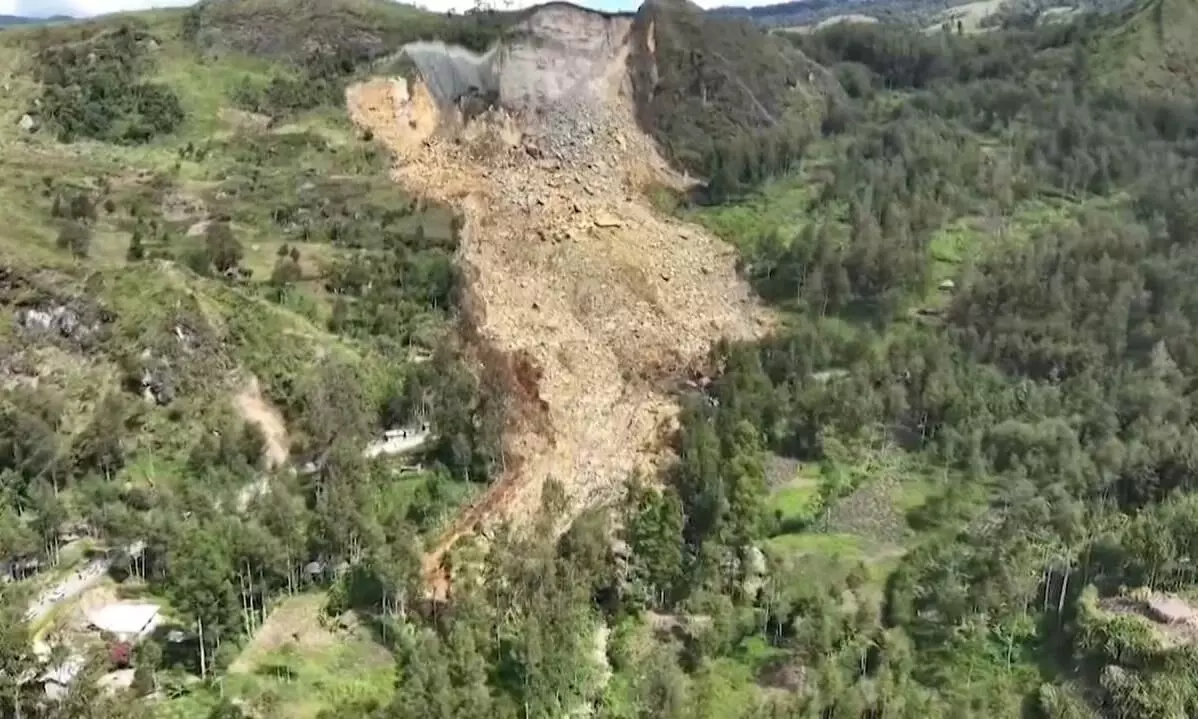
Large landslide kills 2,000 in Papua New Guinea, says administration
text_fieldsCNN Image.
Melbourne: A severe landslide in Papua New Guinea on Friday killed 2,000 people, three times more than a United Nations count, the country's administration said. UN's estimate of the death count was 670, the Associated Press reported.
In a letter seen by The Associated Press to the United Nations resident coordinator dated Sunday, the acting director of the South Pacific island nation's National Disaster Center said the landslide "buried more than 2000 people alive" and caused "major destruction".
Estimates of the casualties have varied widely since the disaster occurred, and it was not immediately clear how officials arrived at the number of people affected.
Australia prepared on Monday to send aircraft and other equipment to help at the site of a deadly landslide in Papua New Guinea as overnight rains in the South Pacific nation's mountainous interior raised fears that the tons of rubble that buried hundreds of villagers could become dangerously unstable.
Australian Defence Minister Richard Marles said his officials have been talking with their Papua New Guinea counterparts since Friday when a mountainside collapsed on Yambali village in Enga province, which the United Nations estimates killed 670 people. The remains of only six people have been recovered so far.
"The exact nature of the support that we do provide will play out over the coming days," Marles told Australian Broadcasting Corp.
"We've got obviously airlift capacity to get people there. There may be other equipment that we can bring to bear in terms of the search and rescue and all of that we are talking through with PNG right now," Marles added.
Papua New Guinea is Australia's nearest neighbour, and the countries are developing closer defence ties as part of an Australian effort to counter China's growing influence in the region. Australia is also the most generous provider of foreign aid to its former colony, which became independent in 1975.
Heavy rain fell for two hours overnight in the provincial capital of Wabag, 60 kilometres (35 miles) from the devastated village. A weather report was not immediately available from Yambali, where communications are limited.
However, emergency responders were concerned about the impact of rain on the already unstable mass of debris lying 6 to 8 metres (20 to 26 feet) deep over an area the size of three to four football fields.
An excavator donated by a local builder Sunday became the first piece of heavy earth-moving machinery brought in to help villagers who have been digging with shovels and farming tools to find bodies. Working around the still-shifting debris is treacherous.
Serhan Aktoprak, the chief of the International Organisation for Migration's mission in Papua New Guinea, said water was seeping between the debris and the earth below, increasing the risk of a further landslide.
He did not expect to learn the weather conditions at Yambali until Monday afternoon.






















